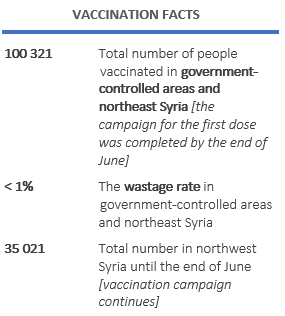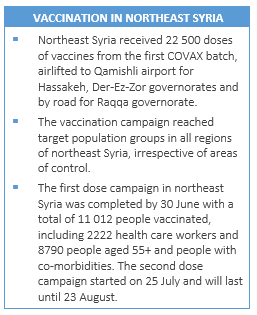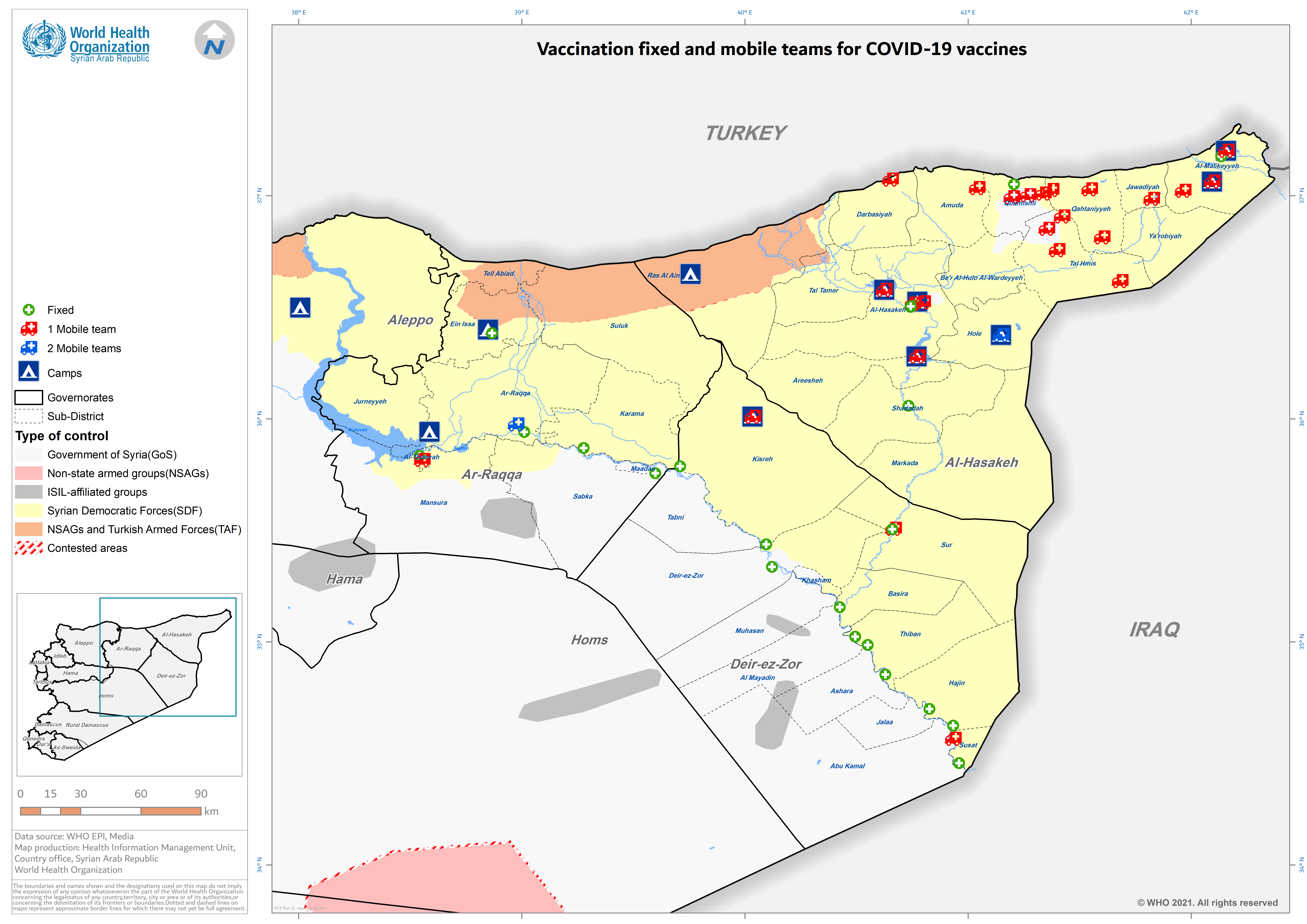
 6 July 2021 – Syria received the first batch of vaccines supplied through the COVAX initiative on 21 April 2021. In total, 256 800 doses of AstraZeneca SII COVIDSHILD were received and distributed to Government-controlled areas and northeast Syria, as well as to northwest Syria.
6 July 2021 – Syria received the first batch of vaccines supplied through the COVAX initiative on 21 April 2021. In total, 256 800 doses of AstraZeneca SII COVIDSHILD were received and distributed to Government-controlled areas and northeast Syria, as well as to northwest Syria.
The vaccination campaign in Syria started on 17 May 2021. Of total doses provided to Syria, 53 800 doses were delivered through Gaziantep for use in northwest Syria and 203 000 doses to Damascus for use in a national campaign implemented by the Ministry of Health across all other parts of the country, including northeast Syria.
 Priority groups
Priority groups
Health workers, the elderly and people with comorbidities are the high-risk priority groups as per the National Deployment and Vaccination Plan. The 2 different vaccination strategies are applied: in northwest Syria – all currently available vaccine quantities are dedicated for first dose vaccination, while the national immunization programme split the total quantity available into 2 and has administered first dose vaccines only, keeping the second dose in stocks for later vaccination.
 Challenges
Challenges
As in all countries, the COVID-19 vaccination has been a novel process in Syria and a number of challenges was faced since the onset of the vaccination campaign. Though healthcare workers were prioritized, some hesitated to accept a COVID-19 vaccine in general, and AZ, in particular. Vaccine demand generation was and remains especially difficult. With vaccine availability only adequate to cover 0.5% of the population of Syria – compared to the 3% initially planned by June and 20% by December 2021 – a national promotional campaign was suspended, leading to challenges in creating demand. However, as more people received vaccines, the demand also gradually rose.
Joint efforts and way forward
WHO and partners reached out to health care workers at health facilities and through medical syndicates to promote vaccine uptake.
As the vaccines expire in August 2021 and doses must be taken at least 8 weeks apart, the campaign was time sensitive and therefore, vaccines were offered to other groups in order to avoid waste.
Vaccine uptake was initially low across all governorates, but coverage grew as more people took the vaccine without experiencing side-effects, thus building confidence in the vaccine.
WHO works with GAVI – the Vaccine Alliance, UNICEF and its partners to secure the second batch of COVAX facilitated vaccines in the near future.
Related link
Vaccination updates, January-June 2021



